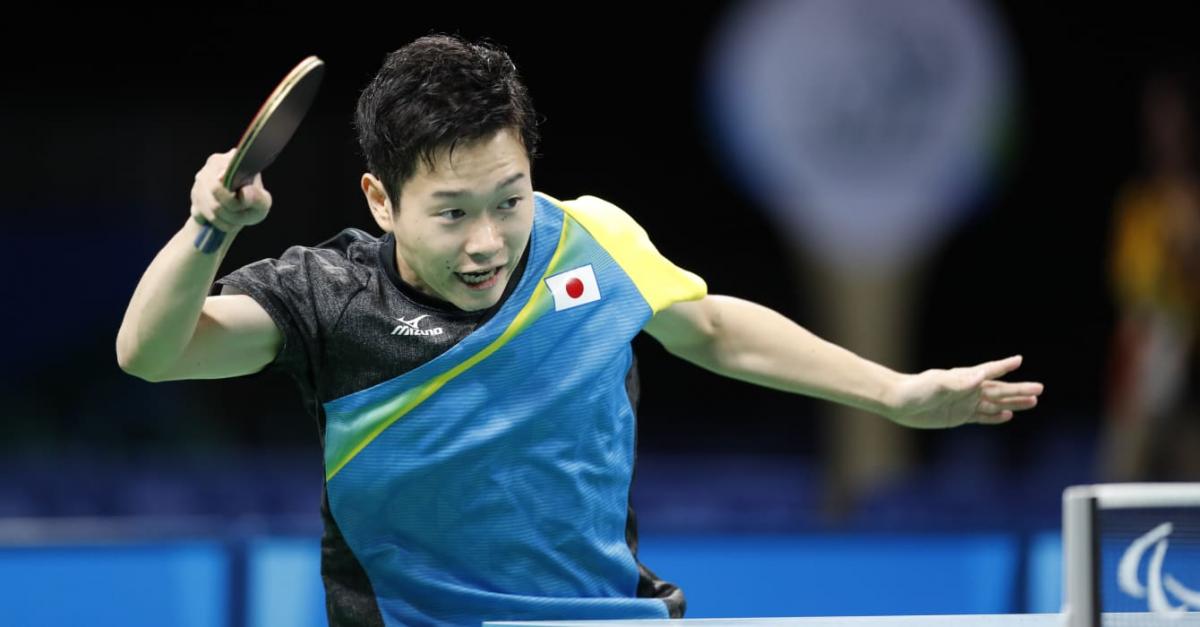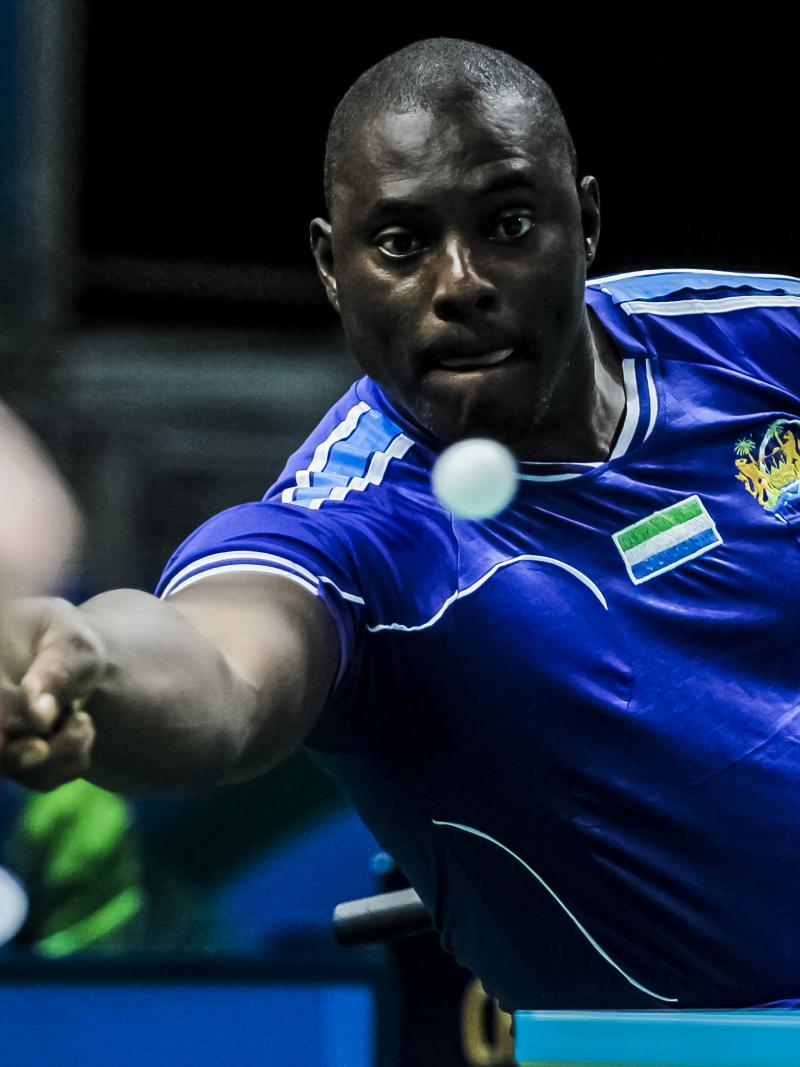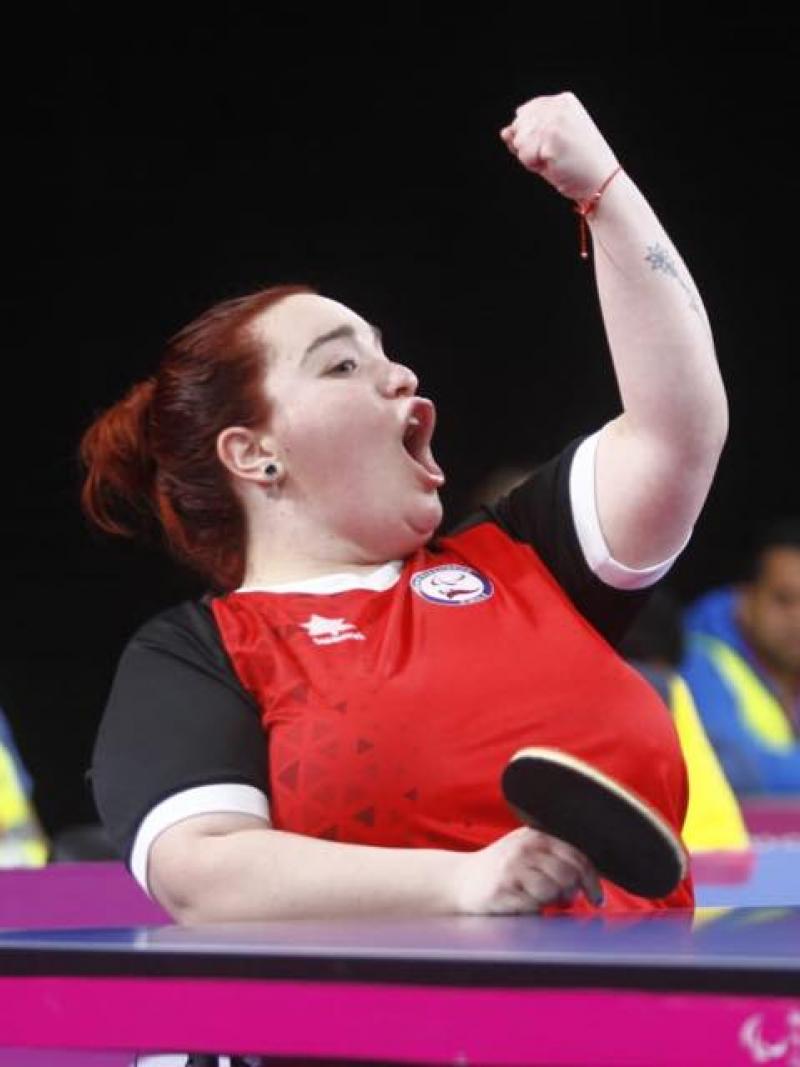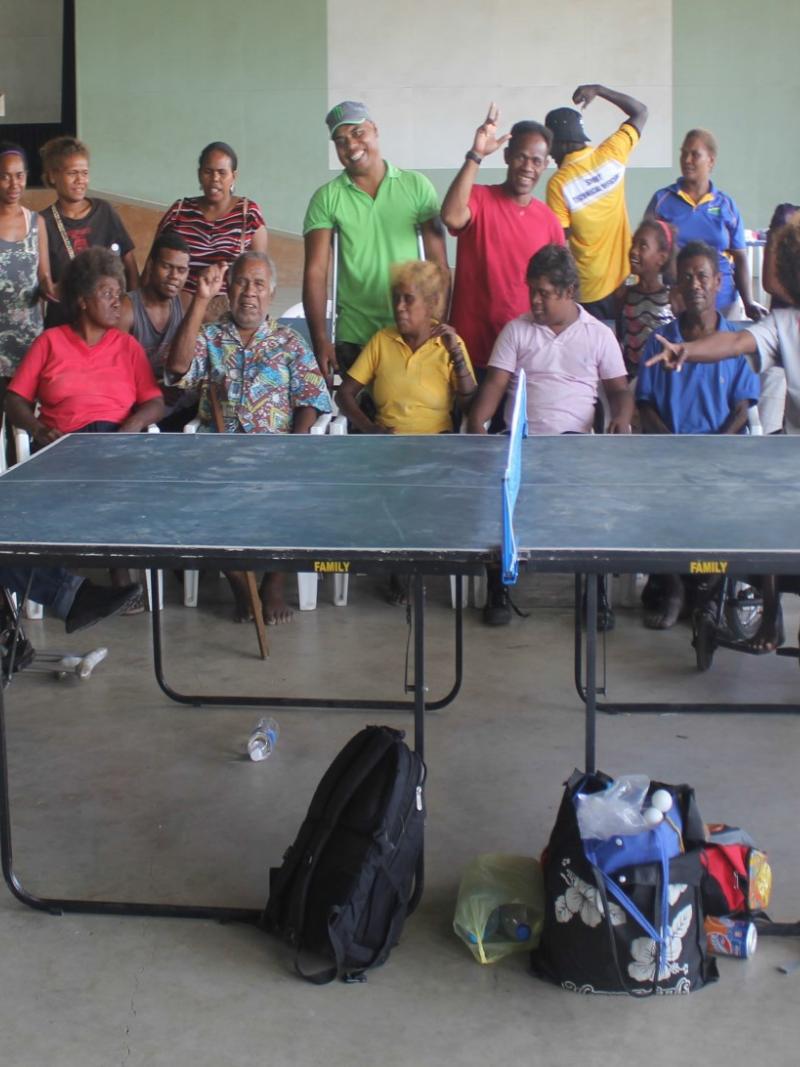Q&A with Para table tennis star Iwabuchi Koyo
Japanese medal hopeful opens up about his YouTube channel, working through the Tokyo 2020 postponement and more 28 Sep 2020
With the postponement of his home Paralympics at Tokyo 2020, Japan's Iwabuchi Koyo used the time to start his own YouTube channel in hopes of educating viewers on Para table tennis.
The world No. 3 class 9 athlete made his Paralympic debut at Rio 2016 and is seeking to bring his country joy with a medal in Tokyo next year. In the lead-up to Tokyo, Iwabuchi spoke with Tokyo2020.org about the inspiration behind his YouTube vidoes, disability in Japan and more:
Tokyo 2020: Tell us more about the appeal to promote Para table tennis through your YouTube channel.
Iwabuchi Koyo: Hoping to convey the appeal of Para sports from all kinds of perspectives ahead of Tokyo 2020, I launched a YouTube channel in February that I have been updating weekly.
I started filming and editing videos amid worries that the event might not be held due to the outbreak of COVID-19. Now that the Games have been postponed, I've changed my mindset and decided to continue posting new videos with the aim of increasing people’s knowledge of the sport over the next year.
Recently, my followers have been gradually decreasing as the Paralympic Games have been pushed back for a year and all other competitions are being cancelled. Nevertheless, I will continue this effort in the hope that it will attract as many viewers as possible and contribute to promoting Para table tennis.
I create videos from various perspectives, including those introducing my orthotics and commentaries of my past matches. Sometimes I take great pains to come up with the right topic and wonder if I can really keep this up for another year. Still, I would like to see this work through until the Tokyo 2020 Games next year.
Tokyo 2020: How did attending your first Paralympics in Rio motivate you to change the way people view disability?
IK: It was at the Rio 2016 Paralympic Games, the first Paralympic Games in which I participated, that I came up with the idea of creating videos. I had never really had the chance to play in front of an audience until then, so this elite sporting occasion was an eye-opening experience. During the event, I realised that many of the spectators were watching Para table tennis for the first time and were not familiar with the sport.
Para table tennis embraces people with different types of impairments, and being an interpersonal competition, the best part of it for me is seizing an opportunity and taking advantage of it.
Once at a match, I saw Giada Rossi from Italy, the world’s number one player in class 2 (wheelchair class) hit a drop shot close to the net. Local spectators booed and jeered at the play, complaining that it’s not fair since the wheelchair opponent could never reach it. However, seeing her repeat the play until the end, the audience gradually understood that it was a skill she had acquired, the culmination of her hard work. When the game ended with Rossi’s victory, she was met with a standing ovation and a warm atmosphere surrounded the venue.
Obviously, she wouldn’t have been booed if people had known more about Para table tennis. So, I thought a video that familiarises spectators at the Tokyo 2020 Paralympic Games with the sport before heading to the match would be beneficial.
With no search results of 'Para table tennis video' showing up on the web, I decided to make one myself, and launched my YouTube channel. Videos include my commentaries on the strengths and weaknesses of my potential opponents at Tokyo 2020. We practise and develop our game plan after careful examination of our weaker areas that opponents might identify and exploit.
Impairments are not disadvantages that should be pitied, but essential components of Paralympic sports. Therefore, I believe providing information on the impairments of opponents is also important.
Tokyo 2020: How have you been coping with the postponement and lockdown due to COVID-19?
IK: During the stay-at-home period following the declaration of the state of emergency in Japan, our team members made an arrangement and took turns to use the gymnasium as teams could not congregate to practise. With no-one to return my ball, I found myself unable to play table tennis over an extended period of two months. This experience reminded me that one can only play sports when safety is guaranteed. I could not but be grateful for the environment that I had taken for granted.
Now, I ride my favourite bicycle a lot in my extra time. Before the self-isolation request, I could only ride to and from my house and the training facility. On a fine day, I travel along a river for a few hours, about 20 to 30km in distance. Since my legs are impaired, it is difficult and painful for me to run on my own legs for a long time. Cycling, on the other hand gives me the pleasure of whizzing down a long road. I am really into this refreshing pastime. So much so, that I bought many gadgets and am on the saddle almost every day.
Another of my recent pastime is reading. One impressive book was “Paralympics and Japan,” a book on the Tokyo 1964 Paralympic Games. Para athletes that represented Japan at the time mostly lived in a sanatorium or were bed-ridden at home. People in a wheelchair rarely worked. Meanwhile, for athletes overseas, sports were a tool for rehabilitation, and most of them worked just like able-bodied persons. This fact left a strong impression on Japanese para athletes. I was also surprised at the huge difference in people’s awareness towards people with an impairment as well as the social environment between Japan and elsewhere at the time, and that was not so long ago.
Nearly 60 years have passed since the previous Tokyo Olympic Games was held in 1964, but even I still feel the difference in the awareness and environment mentioned above.
For example, although infrastructure in Japan is well established – streets are clean, not bumpy or rough, international Para tournaments are rarely held. I myself have participated only once. The scarcity of Para related events held in Japan may be testament to the difference in awareness. On the other hand, Europe holds numerous competitions although streets are sometimes bumpy and rough, people seem to take these factors into consideration and there is a higher level of both support and understanding for the athletes.
It’s true that bumpy streets may pose a safety issue, but what’s important for us athletes are that events and matches are held. I hope Japanese awareness towards people with impairments will change.

 Facebook
Facebook
 Instagram
Instagram
 Twitter
Twitter
 Youtube
Youtube
 TikTok
TikTok
 Newsletter Subscribe
Newsletter Subscribe




